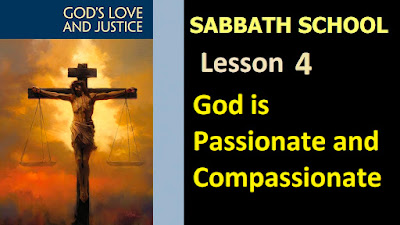Many people struggle with the concept of divine wrath because it appears to conflict with their understanding of God's love, mercy, and justice. In a culture that often emphasizes tolerance and unconditional acceptance, the idea of God's anger or judgment can feel uncomfortable or even unjust. Additionally, misunderstandings about divine wrath—such as equating it with human anger, which is often irrational or vengeful—can make it difficult for people to grasp its true nature.
What Helps Us Understand Divine Wrath?
Seeing Wrath as a Consequence of Holiness and Justice
God’s wrath is not arbitrary or cruel; it is a necessary response to sin and injustice. Just as a good judge must uphold justice, God's wrath reflects His perfect righteousness.
Recognizing the Connection Between Love and Wrath
Love and wrath are not opposites. If God truly loves goodness, truth, and His people, He must also hate and respond to evil. For example, a loving parent who sees their child harmed by addiction or abuse will naturally feel anger toward whatever is causing that harm.
Understanding Wrath in the Context of Redemption
God's wrath is not an end in itself—it serves a redemptive purpose. The ultimate expression of divine wrath was poured out on Jesus at the cross, demonstrating both God's justice and His mercy. Those who trust in Christ are saved from wrath, while those who reject God’s offer of salvation remain under it (John 3:36).
Distinguishing Between Human and Divine Wrath
Unlike human anger, which is often impulsive or self-serving, God's wrath is always perfectly just, measured, and purposeful. He does not react out of uncontrolled emotion but out of His perfect nature.
Seeing Wrath as Part of God’s Patience
Scripture often portrays God as slow to anger (Exodus 34:6, 2 Peter 3:9). His wrath is not immediate but comes after opportunities for repentance. This delay shows His patience and desire for people to turn back to Him.
Ultimately, a proper understanding of divine wrath leads to a greater appreciation of God’s holiness, justice, and grace. It reminds us of the seriousness of sin, the depth of God's love in providing salvation, and the urgency of responding to His call.




















